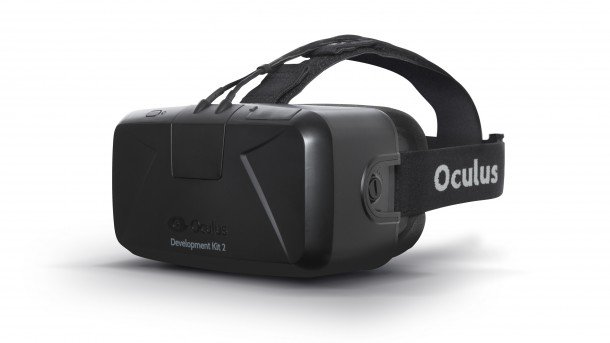Oculus VR accuses ZeniMax of seeking a "quick payout" from Facebook

Oculus VR has filed a response to ZeniMax Media's lawsuit against it , describing the trademark infringement claim as "a transparent attempt to take advantage of the Oculus VR sale to Facebook." It alleges that ZeniMax omitted and misstated facts in its suit, and repeated its own assertions that "there is not a line of ZeniMax code" in any Oculus VR product.
ZeniMax Media filed suit against Oculus VR in May, accusing the company of "illegally misappropriating ZeniMax trade secrets relating to virtual reality technology." It claimed that the company and its founder, Palmer Luckey, "lacked the necessary expertise" to create the handset, and were thus basically dead in the water until ZeniMax, and specifically former employee (and now Oculus VR CTO) John Carmack got involved. It was Carmack's input, built on work he'd done in previous years, that made the Oculus Rift viable and thus attractive to Facebook, which acquired the company in March in a deal worth roughly $2 billion.
Oculus denied the substance of those claims in its response , however, saying that Luckey developed multiple prototypes over the years prior to his connection with Carmack, and that when Carmack requested an Oculus Rift prototype for a demonstration at the 2012 E3, he asked for neither the motion sensor nor the VR software Luckey had been using. The response also quotes Carmack as specifically crediting Luckey as the sole creator of the Rift, both before and after E3.
Much of the Oculus defense seems to hinge on the timing of the ZeniMax claim. The suit notes several instances in which ZeniMax cooperated with Oculus VR while making no claim to any of its work nor demand for compensation, and also that it failed to invest in the company despite being given multiple opportunities to do so. Furthermore, "After undoubtedly conceiving its belated claim of ownership to Oculus VR's technology as a means to pressure Oculus VR into a quick settlement by threatening the Facebook deal... ZeniMax initiated a public relations attack against Oculus VR that was intended to destroy Oculus VR's credibility among investors, the gaming community and other important constituents and stakeholders, and to disrupt the impending Facebook acquisition."
"By its conduct, express statements, and silence, ZeniMax understood that the Oculus Rift and the technology powering it belonged solely to Oculus VR and that Oculus VR had not infringed any of ZeniMax's intellectual property rights or otherwise misappropriate any proprietary information of ZeniMax," it states.
Oculus VR is demanding a jury trial "on all issues and claims," and while it's always possible that a settlement will be reached, the strong language coming out of both sides—not to mention ZeniMax's prior claim that it exhausted efforts to resolve the matter amicably before filing suit—suggests we're not likely to see it happen anytime soon.
The biggest gaming news, reviews and hardware deals
Keep up to date with the most important stories and the best deals, as picked by the PC Gamer team.

Andy has been gaming on PCs from the very beginning, starting as a youngster with text adventures and primitive action games on a cassette-based TRS80. From there he graduated to the glory days of Sierra Online adventures and Microprose sims, ran a local BBS, learned how to build PCs, and developed a longstanding love of RPGs, immersive sims, and shooters. He began writing videogame news in 2007 for The Escapist and somehow managed to avoid getting fired until 2014, when he joined the storied ranks of PC Gamer. He covers all aspects of the industry, from new game announcements and patch notes to legal disputes, Twitch beefs, esports, and Henry Cavill. Lots of Henry Cavill.

